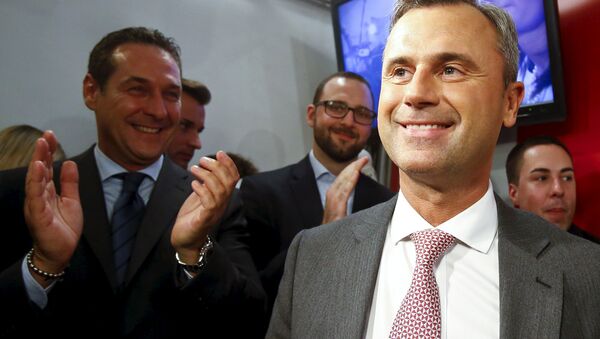The 45-year-old Freedom Party candidate, who was the youngest candidate for the largely ceremonial post, gained 36.4 percent of the votes. He was followed by Alexander Van der Bellen, a member of the Green Party who ran as an independent, with 20.4 percent of votes. They will face off again during a run-off vote, scheduled for May 22.
Anti-migrant #NorbertHofer presidential poll in Austria https://t.co/JBfjMsh3dJ
— Dawn.com (@dawn_com) 25 апреля 2016 г.
Independent candidate Irmgard Griss came third with 18.5 percent of votes. Andreas Khol and Rudolf Hundstorfer from the ruling People's Party (OVP) and Social Democrats (SPO) suffered a painful defeat with just over 11 percent of votes and will not take part in the second round.
This represents a significant upset for the country's political establishment; neither of the second-round candidates are backed by either the Social Democrats or their center-right coalition partners, the People's Party. This means that the next Austrian president will be the first to be elected since 1945 without the blessing of either of these two parties.
An Austrian president is elected for six years and can be reelected for two consecutive terms. The post comes with a monthly salary of 24,322 euros.


